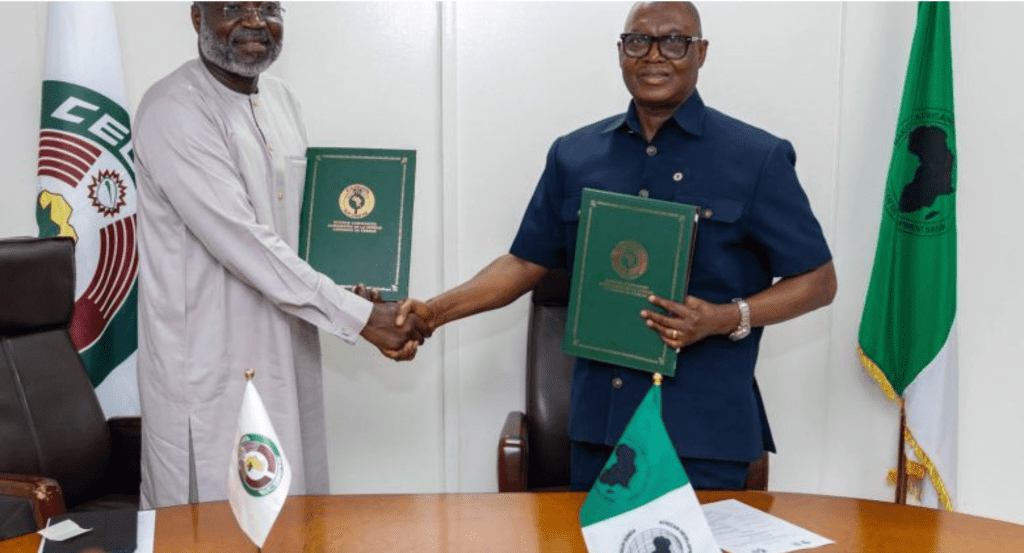The Economic Community of West African States (ECOWAS) and the African Development Bank (AfDB) have signed a $12 million grant agreement to implement the Rice Resilient Value Chains Development Project (REWARD) across West Africa. This initiative aims to increase rice production, boost food security, and enhance the West African rice value chain by leveraging public and private investments.
Project Overview: Achieving Rice Sovereignty in West Africa
The REWARD project is part of a broader $650 million regional rice development program funded by the AfDB to achieve rice sovereignty in West Africa. The project will be implemented across all 15 ECOWAS member states, focusing on strengthening local production capacity, reducing import dependence, and fostering economic resilience.
Key Objectives of the REWARD Project
- Increase rice production: Expand cultivation areas and improve farming techniques.
- Enhance processing and value chains: Strengthen rice milling and packaging industries.
- Promote sustainability: Introduce climate-resilient farming practices.
- Support smallholder farmers: Provide financial aid, training, and technology access.
- Reduce rice imports: Move towards regional self-sufficiency in rice production.
Key Benefits of the REWARD Project for West African Farmers
1. Increasing Rice Production Through Sustainable Practices
The project aims to modernize farming methods by introducing high-yield rice varieties, improved irrigation techniques, and mechanized farming. This will increase productivity and make rice farming more profitable for local farmers.
2. Strengthening the Rice Value Chain
By investing in rice processing plants and distribution networks, the project ensures that high-quality rice reaches consumers efficiently, reducing post-harvest losses and improving market access for farmers.
3. Reducing Import Dependence & Ensuring Food Security
West Africa currently imports a significant portion of its rice, costing billions annually. The REWARD project aims to reduce this reliance on imports by making locally grown rice more competitive in price and quality.
4. Job Creation & Economic Growth
By expanding the rice sector, the project will create thousands of jobs in farming, processing, transportation, and retail, contributing to the economic development of the region.
READ ALSO: Nigeria’s Trade with ECOWAS Hits N1.18 Trillion in Exports, N77.10 Billion in Imports
Signing Ceremony: A Commitment to Agricultural Growth
The agreement was signed at the ECOWAS Commission Headquarters in Abuja, Nigeria, with:
- Dr. Alieu Omar Touray, President of the ECOWAS Commission, representing ECOWAS.
- Dr. Abdul Kamara, AfDB Director General for Nigeria, representing the AfDB President, Dr. Akinwumi Adesina.
Official Statements
🗣️ Dr. Touray: “This project will be a game-changer in transforming the rice sector and ensuring food security in West Africa. We appreciate the AfDB’s support and are committed to its successful implementation.”
🗣️ Dr. Kamara: “The AfDB remains dedicated to supporting ECOWAS in achieving food security and economic resilience in the region. This initiative aligns with ECOWAS Vision 2020 for a self-sufficient West Africa.”
Which West African Countries Will Benefit the Most?
While the project spans all 15 ECOWAS nations, Nigeria, Ghana, Côte d’Ivoire, Senegal, and Mali are expected to see the most significant impact due to their large rice production potential and existing investments in the sector.
A Step Toward West Africa’s Agricultural Independence
The ECOWAS-AfDB $12M REWARD project marks a significant step toward rice self-sufficiency in West Africa. By increasing rice production, reducing import dependence, and supporting local farmers, the initiative will strengthen West Africa’s food security and economic resilience.
Want to Learn More?
Visit the African Development Bank and ECOWAS for more details on this initiative.




















